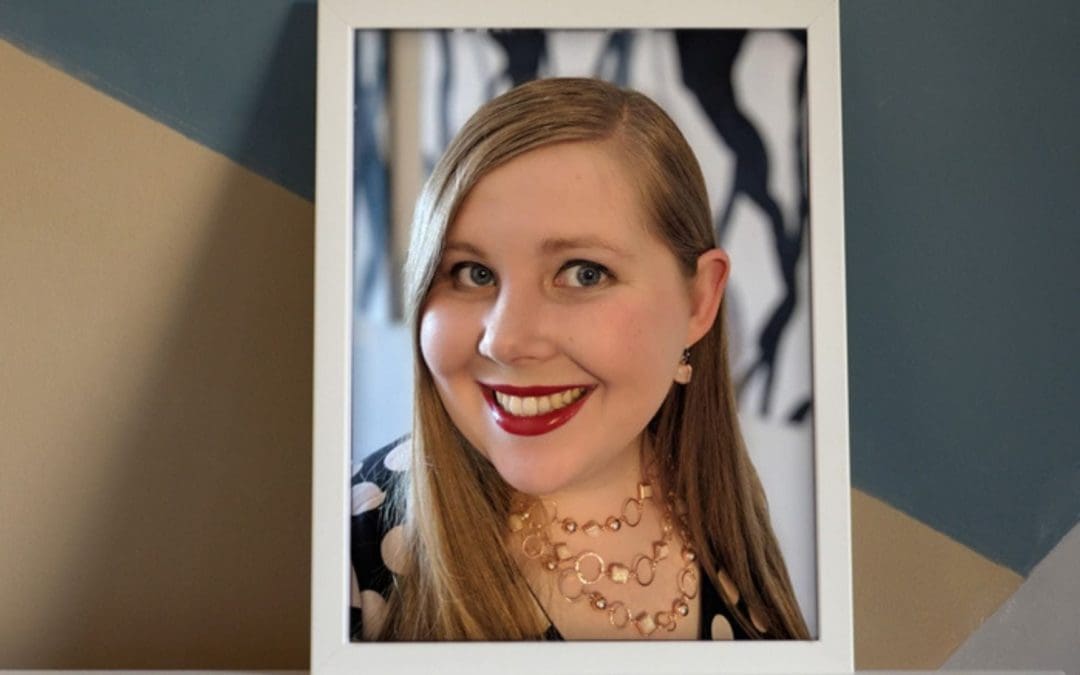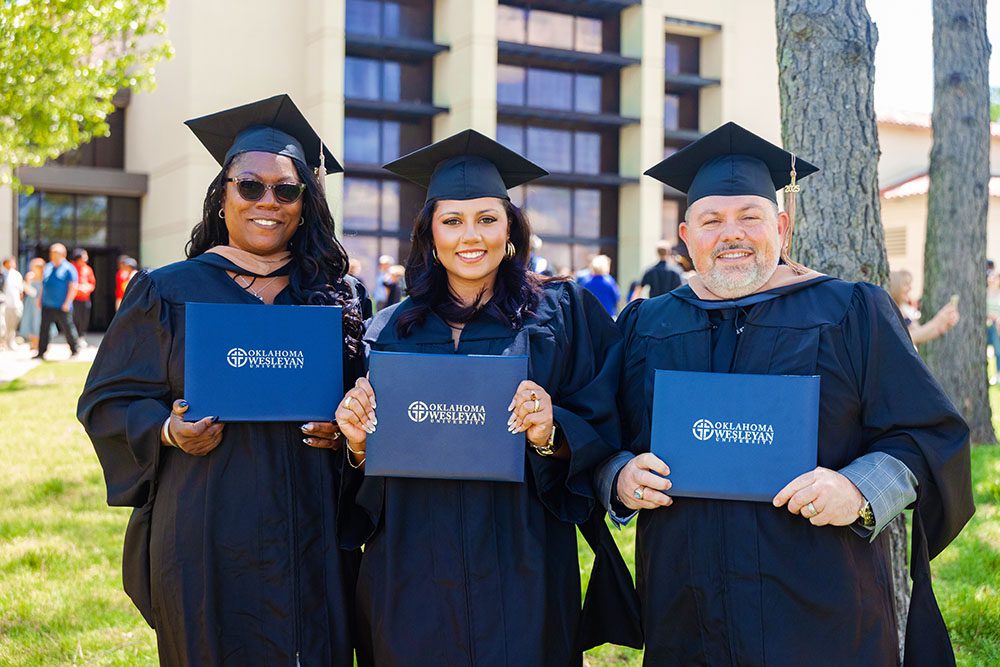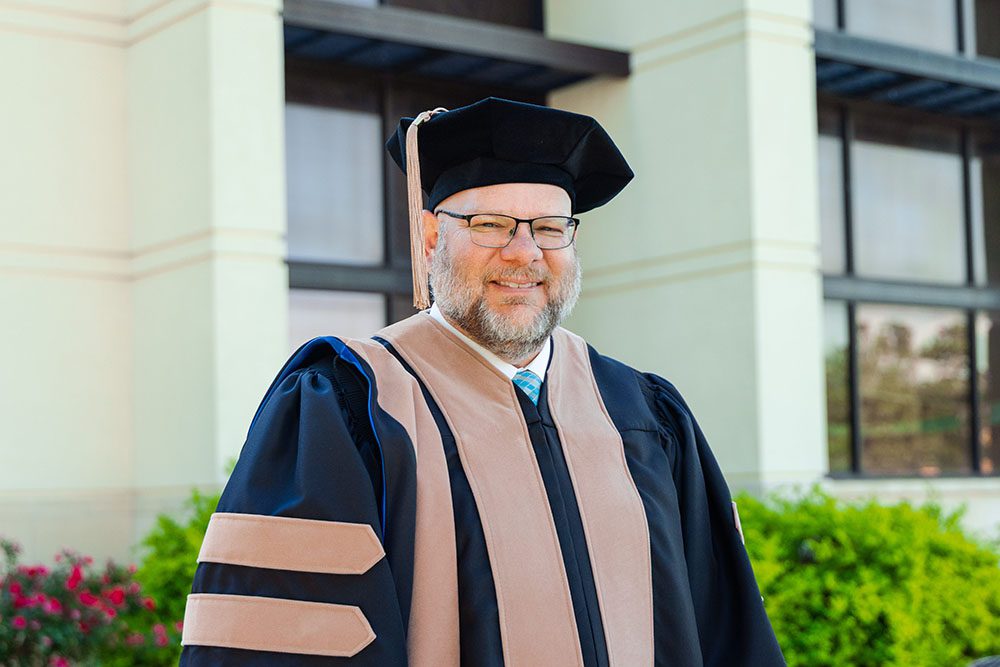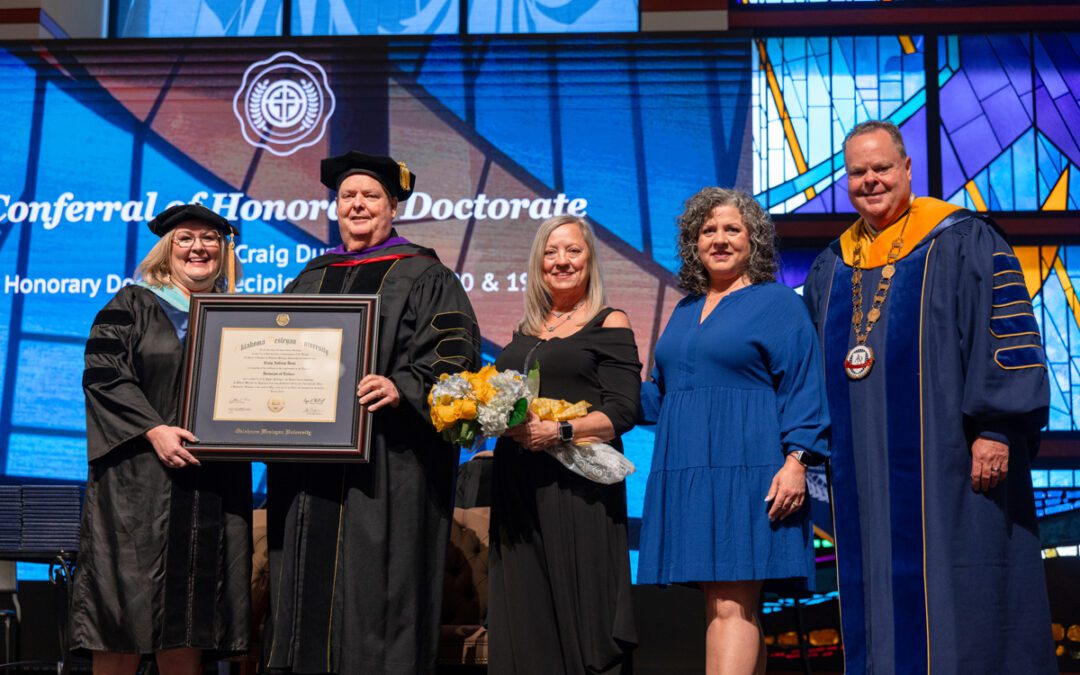For Alyx Hoge, it all comes down to one thing: affecting real change for those without a voice.
She grew up in the Dallas area, but it’s no surprise that Hoge ended up at OKWU. As a fourth-generation Eagle – she’s had parents, grandparents, and great-grandparents that attended in Bartlesville or at an antecedent school – it was in her blood.
“It’s kind of a family tradition,” she said. “I remember going to homecoming, my mom’s reunions, seeing the campus… it was definitely on my list.”
Still, after attending a large public high school that had more students than OKWU, the atmosphere on campus was a welcome change. “I loved the small campus environment,” Hoge said. “You get to know your professors and your cohort really well.”
Originally planning to major in political science, Hoge changed her mind when she met Dr. Mike Fullingim. “[He] was so great. He was my advisor, so I ended up in the Global Studies program, which had a lot of that cool and interesting intercultural training, some basic linguistic stuff,” she said. “I was just so enthralled with all of that.”
And when she graduated in 2015 with a Global Studies major, a minor in English Literature, and a desire to take what she learned out into the world, Hoge had the aid of another OKWU professor, Dr. Darek Jarmola, who helped her find a job with a human rights non-profit, where she worked for a couple of years.
It was here that Hoge’s passion for human rights work was fanned into flame. She soon began her master’s work in International Relations at American University, near Washington, D.C. An internship was required for her coursework, and Hoge was fortunate to gain an internship at the U.S. State Department working with the Bureau of Democracy, Human Rights, and Labor and the Office of East Asia and the Pacific.
During her time at the State Department, Hoge had the opportunity to extensively research the ongoing human rights crisis in China, eventually writing an article detailing the State Department’s response to the crisis and their aid to Chinese citizens.
“I ended up in the Global Studies program, which had a lot of that cool and interesting intercultural training, some basic linguistic stuff. I was just so enthralled with all of that.”
“A lot of their culture and their religious freedom and ability to express themselves and live their lives has just been decimated by these really terrible programs,” she said. “People describe the region as almost an open-air concentration camp.”
Ultimately, she found it rewarding to focus on the State Department’s responses to the issue, asking the actionable questions necessary to the crisis. “What are some steps being taken to actually help people and stand up for democracy and human rights throughout the world?” she said.
She also, during her time working at the State Department, became conscious of just how much people can do to make a difference for global human rights, no matter where they are in the nation. Hoge advises two easy steps: staying up to date with international news, along with making sure each person makes their voice heard when issues arise around the globe needing American attention.
“If something does really resonate with you in the news, look to see if your congressperson is doing anything about it,” she said. “That sort of stuff makes a lot more difference than I think people realize, especially when you’re talking about a local representative.”
Currently, Hoge is working on finishing up her master’s work and prayerfully seeking her next professional role. She’s grateful for the experiences she’s been able to have but knows that she’s not close to done.
“Human rights work, overall, is a big part of my passion, and I think I’ve been really lucky to have two positions that have let me work on this issue directly,” she said.
To read Alyx’s article for State Magazine, click here.
“If something does really resonate with you in the news, look to see if your congressperson is doing anything about it. That sort of stuff makes a lot more difference than I think people realize, especially when you’re talking about a local representative.”



